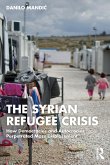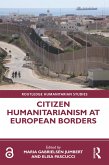This collection examines how the loss of state socialism as a world-making project and the subsequent failures of postsocialist "civil society building" have impacted new generations of progressive, antinationalist, anarchist, and social-justice oriented activists.
How do the histories of state socialism come to shape activist thinking and practice in Eastern Europe and the Caucasus? What kinds of political work can and does emerge out of this 30-year-long experience of political, social, and economic transformation? Understanding postsocialism as an intersectional experience and a geopolitically sensitive form of knowledge, this collection of essays seeks to render visible the forms of political activism in the region that are not tied to, or fully determined by, specific moments of street protest and public interruption.
Instead, the contributors examine forms of activist effort that endure in the aftermath of protest movements and in the course of lingeringcrises, in order to capture how our interlocutors seek to enact their desired futures under the conditions of intensifying and shape-shifting pressures of neoliberal governance. The ethnographies that span from Armenia to Ukraine, to Bosnia-Herzegovina to the newly emerging transnational Balkan route that refugees and migrants have created, illuminate how local activists engage with and/or disengage from their socialist inheritance of political imaginaries differently and imagine different futures. Our collection argues for a need for a careful, theoretically nuanced and context-specific analysis across the uneven political landscapes of the former socialist world.
The chapters in this book were originally published as a special issue of History and Anthropology.
How do the histories of state socialism come to shape activist thinking and practice in Eastern Europe and the Caucasus? What kinds of political work can and does emerge out of this 30-year-long experience of political, social, and economic transformation? Understanding postsocialism as an intersectional experience and a geopolitically sensitive form of knowledge, this collection of essays seeks to render visible the forms of political activism in the region that are not tied to, or fully determined by, specific moments of street protest and public interruption.
Instead, the contributors examine forms of activist effort that endure in the aftermath of protest movements and in the course of lingeringcrises, in order to capture how our interlocutors seek to enact their desired futures under the conditions of intensifying and shape-shifting pressures of neoliberal governance. The ethnographies that span from Armenia to Ukraine, to Bosnia-Herzegovina to the newly emerging transnational Balkan route that refugees and migrants have created, illuminate how local activists engage with and/or disengage from their socialist inheritance of political imaginaries differently and imagine different futures. Our collection argues for a need for a careful, theoretically nuanced and context-specific analysis across the uneven political landscapes of the former socialist world.
The chapters in this book were originally published as a special issue of History and Anthropology.








